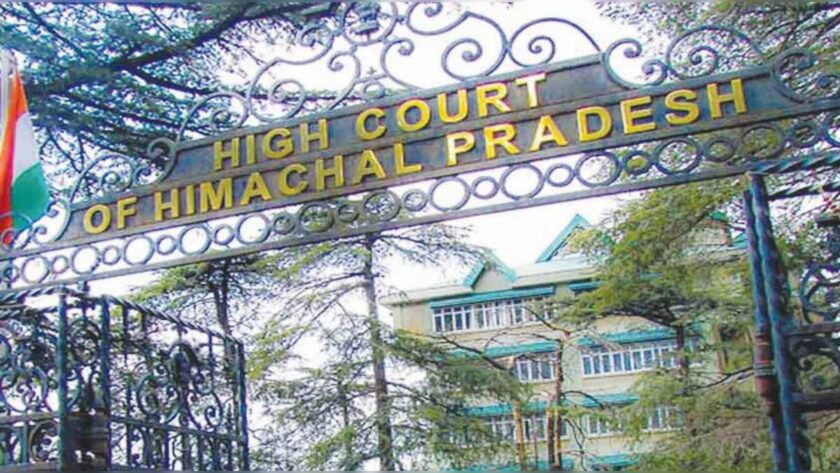n a recent and noteworthy development, the Himachal Pradesh High Court has delivered a significant ruling concerning cases under the Protection of Children from Sexual Offences Act (POCSO). The court has determined that, under specific circumstances, such cases can be quashed if a genuine compromise is reached between the victim and the accused, leading to a happy married life. This ruling emerged in response to a reference made by a single Judge, seeking clarification on the High Court’s powers to quash FIRs based on compromises in POCSO cases.
Himachal Pradesh High Court Rules on POCSO Cases: Quashing on Compromise
Introduction:
In a significant ruling, the Himachal Pradesh High Court has held that cases under the Protection of Children from Sexual Offences Act (POCSO) can be quashed if a genuine compromise is reached between the victim and the accused, leading to a happy married life. The decision came in response to a reference from a single Judge regarding the court’s powers under Section 482 CrPC to quash an FIR based on compromise in a POCSO case.
Court’s Observations:
The Division Bench, comprising Justices Tarlok Singh Chauhan and Satyen Vaidya, emphasized that when a victim, who had earlier alleged sexual assault, later settles the dispute and marries the accused, allowing prosecution to continue would disturb their peaceful family life.
Background of the Case:
The case involved a man accused under the POCSO Act. However, the victim, now his wife, and her family had reconciled, leading to their marriage. The Single Judge, in an earlier hearing, held that in serious offences like those under POCSO, private parties cannot compromise the matter.
Conflict and Reference:
Due to conflicting judgments, the single judge referred the matter to the Chief Justice for resolution by a larger bench. Meanwhile, The Division Bench conducted a comprehensive analysis, citing relevant decisions, including B. S. Joshi vs. State of Haryana and Narinder Singh & Ors. vs. State of Punjab, establishing the High Court’s authority to quash criminal proceedings even in non-compoundable offences.
Court’s Principles and Guidelines:
The Division Bench laid down principles for handling settlements in cases involving sexual offences against women and children. Furthermore, It stressed the need to consider the child’s best interest and evaluate if the allegations constitute the offence’s ingredients. The court must also assess whether the settlement is in the minor victim’s best interest.
Key Observations:
Firstly, The bench warned against using marriage as a means to escape punishment and highlighted the importance of ensuring the victim’s voluntary consent for compromise. In fact, The court concluded that continuing prosecution in cases where the victim and accused have married and lead a peaceful life would result in disturbance to their happy family life.
Conclusion:
Consequently, the Division Bench held that the single judge’s view was incorrect, setting it aside and allowing the petition to quash the FIR under the POCSO Act.
Case Title:
Ranjeet Kumar Vs State of H.P. & Ors.
Synopsis:
The case, titled Ranjeet Kumar Vs State of H.P. & Ors., involved a man accused under the POCSO Act. Notably, the victim, now the accused’s wife, and her family had reconciled, culminating in their marriage. The single judge had previously held that in serious offenses like those under POCSO, private parties could not compromise, leading to a reference to the Chief Justice due to conflicting judgments.
The Division Bench, comprised of Justices Tarlok Singh Chauhan and Satyen Vaidya, conducted a thorough analysis of inherent powers under Section 482 of the Criminal Procedure Code and Section 320, which deals with compounding offenses. Citing relevant decisions, the bench asserted the High Court’s authority to quash criminal proceedings, even in non-compoundable offenses.
The court laid down principles for handling settlements in cases involving sexual offenses against women and children. Emphasizing the child’s best interest, finally the bench highlighted the need to assess whether the allegations constitute the offense’s ingredients and if the settlement is in the minor victim’s best interest. Firstly, The court cautioned against using marriage as a means to evade punishment and stressed the importance of ensuring the victim’s voluntary consent for compromise.
Read More
- A compromise after the conviction cannot be granted any credence from the Supreme Court
- Same-sex relationship- “I trying to remove my previous preconceived orders”: Madras High Court Judge
- Caveat Petition Filing: Best Lawyers in Chennai
- POCSO Protection of Children from Sexual Offences Act
- Draconian Nature of POCSO Offences
- Supreme Court rejected the bail to the accused having a love affair with a minor girl
In conclusion, the Division Bench held that the single judge’s view was incorrect, setting it aside and allowing the petition to quash the FIR under the POCSO Act. This ruling not only provides clarity on the court’s powers but also establishes guidelines for handling sensitive cases involving sexual offenses.

